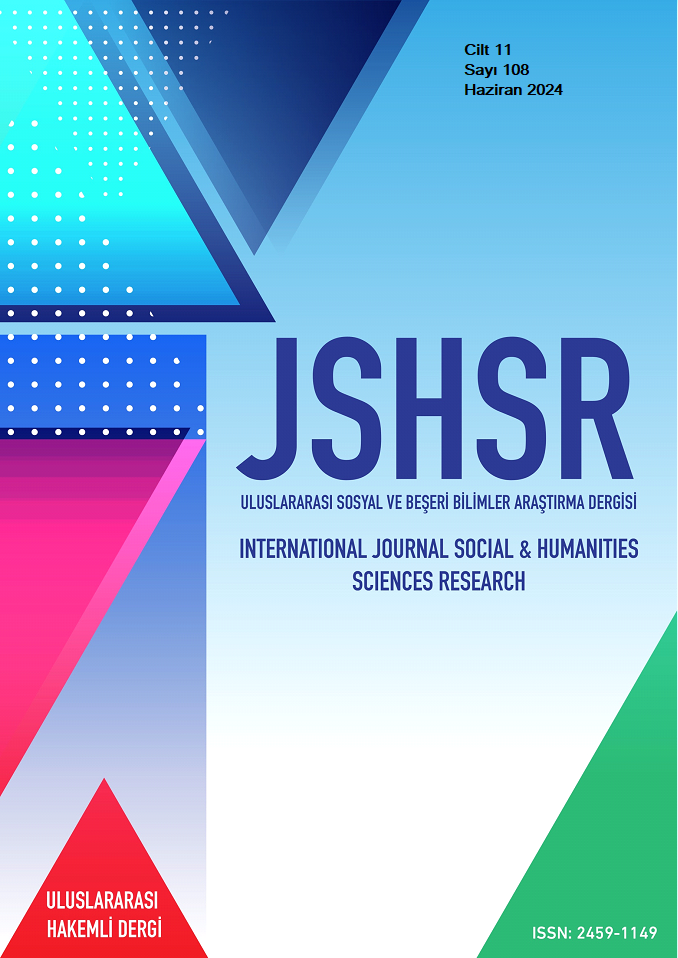An Evaluation of the Methodology of Contemporary French Sociologist Pierre Bourdieu: “Dualisms”, “Relationality” and “Reflexivity”
DOI:
https://doi.org/10.5281/zenodo.12603153Keywords:
Pierre Bourdieu, Sociology, theory, dualism, relationality, reflexivityAbstract
Pierre Bourdieu is an intellectual figure in French sociology. His works are evaluated from a very broad perspective. The concept of method is quite prominent in his works. Like every thinker with intellectual knowledge, he has elements that he supports and opposes regarding method. He has tried to overcome these oppositions and develop a theoretical research and approach in social sciences. Therefore, Bourdieu tries to overcome the relational opposition by giving importance to methodological integrity in the works he deals with. Inspired by Hegel and Cassier, Bourdieu accepts that what is real is relations, that is, relationality. Relationality is at the center of his sociology. Bourdieu thinks that relationality is a tool to solve the problems of society. He invites all sociologists to reflexive sociology in order to analyze social movements and cases. Traces of reflexivity can be seen in Bourdieu's interest in relationality. Bourdieu has put forward a reflexive sociology method towards relationality in all his texts. Although the method in question is not very noticeable in his early texts, it has come to the forefront in his recent works in the form of reflexivity. In short, reflexivity is important in his social theory and has been the focal point of social theory. The aim of this research is to examine the concepts of opposing dualisms, relationality and reflexivity based on Bourdieu. The study will focus on the relationship between subjectivism and objectivism and will address Bourdieu’s structural constructivist method. From this point on, the importance of relational and reflexive sociological methods will be brought to light.
References
Bourdieu, J. ve H, Johan. (2023). Epistemolojik Teyakkuzdan Düşünümselliğe. Çev: Aslı Sümer, Sosyolojiyi Düşünmek içinde. Metis Yayınları.
Bourdieu, P. 2015. Pratik Nedenler. Çeviren: Hülya Uğur Tanrıöver. Hil Yayınları.
Bourdieu, P. (2016). Vive La Crise!: Sosyal Bilimde Heterodoksi İçin”. Çeviren: Ümit Tatlıcan. Ocak ve Zanaat: Pierre Bourdieu Derlemesi içinde. İletişim Yayınları.
Bourdieu, P. (2019). Akademik Aklın Eleştirisi: Pascalca Düşünme Çabaları. Çev: P. Burcu Yalım. Metis Yayınları.
Bourdieu, P. (2021b). Homo Academicus. Çev: Nazlı Ökten, Arzu Nilay Kocasu, Eren Gülbey. İstanbul Bilgi Üniversitesi Yayınları.
Bourdieu, P. (2023). Sosyolojiyi Düşünmek. Çev: P. Burcu Yalım. Metis Yayınları.
Bourdieu, P. (2024). Bilimin Bilimi ve Düşünümsellik. Çev: Levent Ünsaldı. Heretik Yayınları.
Bourdieu, P. ve Wacquant, L. (2021). Düşünümsel Sosyolojiye Davet. Çev: Nazlı Ökten, İletişim Yayınları.
Calhoun, C. (2003). Pierre Bourdieu. Edited By: George Ritzer. The Blackwell Companion to Major Contemporary Social Theorists içinde. Blackwell Publishing: United State, 274-309.
Deer, C. (2010). Reflexivity. Key Concepts içinde. Edited By: Michael Grenfell. Durham: Acumen Publishing.
Grenfell, M. ve H, Cheryl. (2007). Art Rules. Oxford-New York: Berg Publisher.
Grenfell, M. (2010). Introduction. Key Concepts içinde. Edited By: Michael Grenfell. Durham: Acumen Publishing.
Kivinen, O. ve Piiroinen, T. (2012). Pragmatist Metodolojik İlişkiselliğe Doğru. Tözcülüğün Tasfiyesi: İlişkisel Sosyolojide Temel Yaklaşımlar içinde. Çev: Emre Kovankaya, Başak Akgül. Notabene Yayınları.
Mahar, C., Harker, R., & Wilkes, C. (1990). The Basic Theoretical Position. An Introduction to The Work of Pierre Bourdieu içinde. Edited by: Richard Harker. Palgrave Macmillan: New Zealand.
Swartz, D. (2018). Kültür ve İktidar: Pierre Bourdieu’nun Sosyolojisi. Çev: Elçin Gen. İletişim Yayınları.
Wacquant, L. (2016). Pierre Bourdieu: Hayatı, Eserleri ve Entelektüel Gelişimi. Çev: Ümit Tatlıcan. Ocak ve Zanaat: Pierre Bourdieu Derlemesi içinde. İletişim Yayınları.
Downloads
Published
How to Cite
Issue
Section
License
Copyright (c) 2024 INTERNATIONAL JOURNAL OF SOCIAL HUMANITIES SCIENCES RESEARCH

This work is licensed under a Creative Commons Attribution 4.0 International License.


